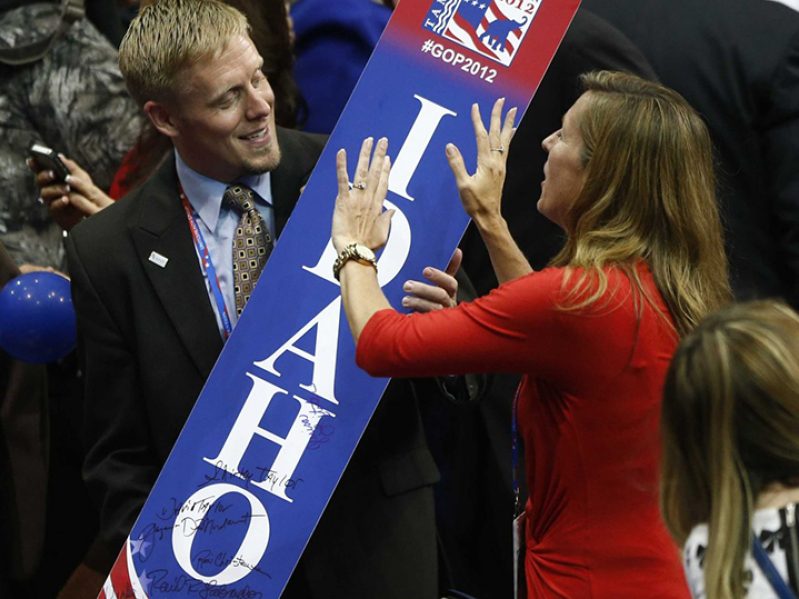
A group of local Republican Party members in Idaho rejected a proposal on Tuesday night that would have declared the state a Christian one without calling a formal vote.
According to D.F. Oliveria of The Spokesman-Review, the Kootenai County Republican Central Committee rejected a resolution that would have labeled Idaho as a "Christian state." The resolution, which was offered by Precinct Committeeman Hans Neumann, was rejected by more than 2/3 of the Central Committee.
"The Christian faith is frequently invoked by many of the founding fathers as the bedrock upon which the nation is to be built," the rejected proposal stated. "The United States is built upon and guided by the tenets of the Judeo-Christian faith."
The proposal also cited that the state's constitution thanked "Almighty God" in its preamble. It contended that "the Christian faith has come under increasingly more strident attack in and by public institutions."
"This hostility is focused exclusively on the Christian faith, reserving clear preferential treatment for other faiths," the proposal stated.
The proposal made its intentions clear in why it wanted to declare Idaho a Christian state.
"This is to be understood as a preservation of the Judeo-Christian bedrock of the founding of the United States and is not to be interpreted as restricting the free exercise of any other religion," the proposal stated.
Oliveria reported that the meeting attracted a standing-room-only crowd. Precinct Committeeman Bjorn Handeen then brought up a motion not to consider the resolution at all.
"At least two-thirds of the 52 committee members in attendance supported Handeen's motion," Oliveria wrote.
Despite the fact that the resolution was non-binding regardless of the results, Laura Zuckerman of Reuters reported that northern Idaho was a Republican stronghold. However, that area was also notoriously known to be the home of the white supremacist movement, most notably the late Aryan Nations founder Richard Butler.
"We're a Christian community in a Christian state and the Republican Party is a Christian Party," Jeff Tyler, a member of the committee and backer of the draft resolution, said. "It's important that Christians stand up and be unashamed to say they're Christians."
Supporters of the measure told Zuckerman that it echoed "Christian principles" as espoused by Thomas Jefferson and James Madison, adding that it had significance in a time where Christians are subject to persecution in other countries, most notably in Syria.
According to Zuckerman, those who opposed the proposal faced a difficult decision.
"Other committee members said they opposed the proposal, but that it placed them in a difficult position because if they voted against it they risked being unjustly labeled as anti-Christian," Zuckerman wrote.
However, Handeen, who described himself to Zuckerman as a Republican with libertarian leanings, said that he opposed any document that allowed the government to define Christianity. He argued that the resolution's intent was to create division.
"Ultimately, I'm not in favor of dividing us by religion," Handeen said. "I'm in favor of uniting us by freedom."






